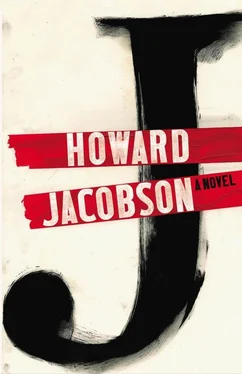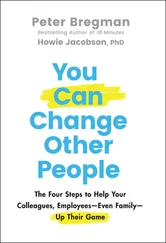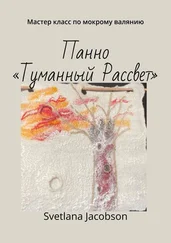As for him, she hoped fervently that he would quit the school, but he didn’t. He didn’t ask her to go to a hotel with him again either. He just did what he was good at and looked away.
If her presence made him anxious, he concealed it well. She, however, grew morose and began to do badly at school. No one knew why, but she lost interest in her studies and left before she had achieved what had been expected of her. Whereas he appeared, if anything, to prosper. Good divinity teachers were hard to come by.
Not long afterwards, at a concert given by Necessary Opposites, she met Compton who repelled her. The degree to which he made her flesh creep excited her. He was opposite to everyone she cared about, opposite to everything she admired and loved. It was marry him or kill him. And, in anticipation of her daughter’s thinking, she saw that it would have been literal-minded of her to kill him.
She didn’t tell Compton about her affair with a murderer or a liar or both. She didn’t want his hands on her experience, she didn’t want to hear him say that the murdered girl got what was owing to her. She was angry enough. Nor did she tell Esme when she was of an age to understand. In Esme’s case it wasn’t necessary; she picked up the essentials without words needing to be exchanged. There was certainly some rage in her that Rhoda proudly believed was her doing. She’d instilled an appetite for justice that was like a hunger in her own belly. Esme, she was confident, would fight the good fight for her. Esme would show courage where she hadn’t. Esme would make someone pay.
NINE. The Celestial Bandleader
i
ESME NUSSBAUM NEVER did go back to her old office. But fragments of it came to her. She hadn’t been as alone as she’d thought. They were slow and watchful, but first one and then another of her ex-colleagues took up the challenge implicit in the report she had produced before her accident. She was right. Something had to be done to curtail the quarrelsomeness that was poisoning the family, the workplace, the schoolyard, and society at large. It would be a while before they would catch up with her more recent thinking, but within five years it had become acceptable to admit there was a problem to be solved. Five years after that, though still shaky on her legs, she was leading a team charged with putting back what had been taken away.
At the first meeting she addressed as head of the Commission for Restitution she spelled out the problems that lay ahead.
‘We cannot any longer go on deploying euphemisms,’ she declared. ‘We have to call a spade a spade. If we are to put back what has been taken away we must restore its human name. These were people. How do you put back people who, in whatever circumstances or for whatever motives, were annihilated?’
She thought the question was rhetorical but a couple of hands went up.
‘I am not,’ she said, ‘looking for immediate answers. We have research to do. But I will take a couple of suggestions to kick us off.’
The first was to go looking in other countries where comparable destruction had either not taken place at all, or had been partial. The second was to come up with an alternative necessary opposite — some other ethnic or religious group that could stand in as hate object for that which had been obliterated. ‘Couldn’t something be done with the Chinese?’ someone asked.
In answer to the first, Esme doubted whether, even if such people could be found, they’d be reckless enough to quit the places of safety in which they’d settled. And supposing that some were game, they were sure to be adventurers and chancers, misfits and counterfeiters and opportunists, the last people she thought suitable to fill the void that had been left. What no one wanted were more riots within a generation.
In answer to the second, she was firm that the mutual suspicion needed to restore the country’s equipoise of hate was not a moveable feast. Difference, which after all was easy to come by, was not in itself enough. So, with respect, ‘no’ to the Chinese who, though they had always kept themselves to themselves, and had never, for that reason, won the love of the indigenous population, were too unalike to do the job. She was undeviating on this. Alternative objects of suspicion couldn’t simply be plucked out of their fractious society at will, or appointed by diktat, on the assumption that any old hostility or incomprehension would do. She needed her auditors to mark her words and mark them well: You have to see a version of yourself — where you’ve come from or where you might, if you aren’t careful, end up — before you can do the cheek-to-cheek of hate. Family lineaments must be discerned. A reflection you cannot bear to see. An echo you cannot bear to hear. In other words, you must have chewed on the same bone of moral philosophy, subscribed to a similar spirituality and even, at some point in the not too distant past, have worshipped at the same shrines. It was difference where there was so much that was similar that accounted for the unique antipathy of which they were in search. And only one people with one set of prints fitted that bill.
As for the question of whether they — this ‘version of ourselves’ — would reciprocate our hatred, why it was no question at all. They were the mirror image of our hostility. They too saw the family resemblance and were fascinated and appalled. True, some had been more easily assimilable than others. They fell in love with those who miscomprehended them — the miscomprehension being a fatal allure in itself. They embraced the culture that vilified and disfigured them. Melted to the music and fainted away before the fastidious beauty of the words. But they had solved their own problem and in doing so had solved the first of Esme’s. They had disappeared into the landscape, become their opposites, long before the time that concerned her and her team. For the remainder, if any could be found, the orchestra had only to start up for the dance to begin again.
I feel like a celestial bandleader, Esme thought.
A simple reiteration of a previously dismissed thought was what put Esme’s commission on a new track. The thought that, WHATEVER HAD HAPPENED, not everyone could have been destroyed. No operation could have been so successful. Some would of course have escaped. But some, too, would surely have hidden. Not all the country had been up in arms. There were places where feelings had not run so high and blood had not been so plentifully spilled. Out of kindness of heart, principle, godliness, or just the obduracy that flourishes away from big towns and capital cities — that dogged refusal to go along with the majority — people would have offered help, given shelter, taken at least a frightened child in. There was no point in being overly optimistic. The chance of finding entire families living peaceably on rocky outcrops where they’d been hiding out for generations was slim. But failing that, could it be that there was not a single man and single woman of pure descent to be discovered somewhere in a population of almost one hundred million people? For no more was necessary — just one single man and one single woman, subject to rigorous authentication and in reasonable health, and it could all begin again.
I feel like Noah, Esme thought.
ii
Had she been in better health herself, she’d have remained in charge of the commission. But when her mother died — her poor angry mother who never got to meet a man she liked — Esme knew she had to change the circumstances of her life. She longed for clean air and her damaged limbs needed the exercise of country walks. Working in the field, in both senses, would suit her better, she decided. And by her own logic, the more far-flung that field, the more likely she was to find what she was looking for. Fossil-hunting she called it.
Читать дальше












